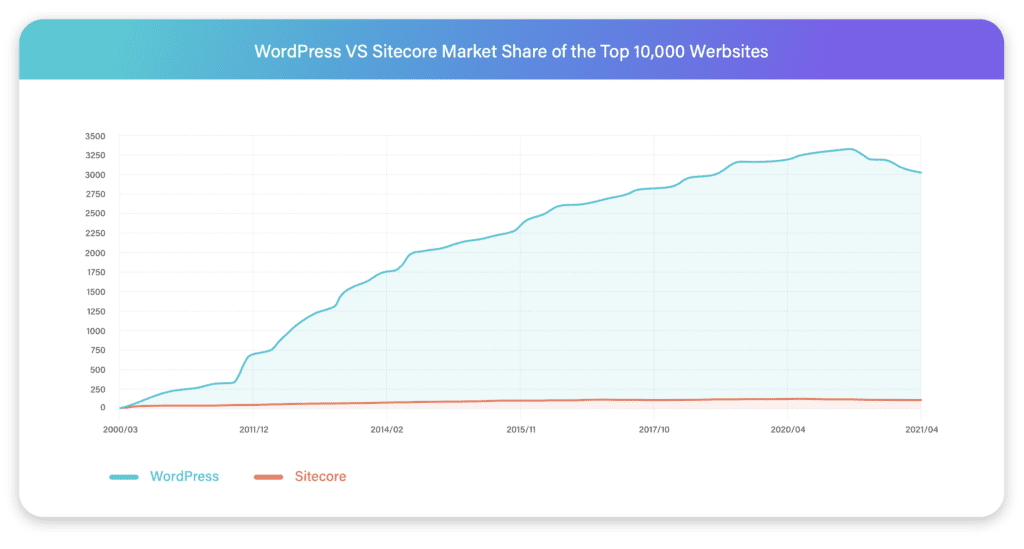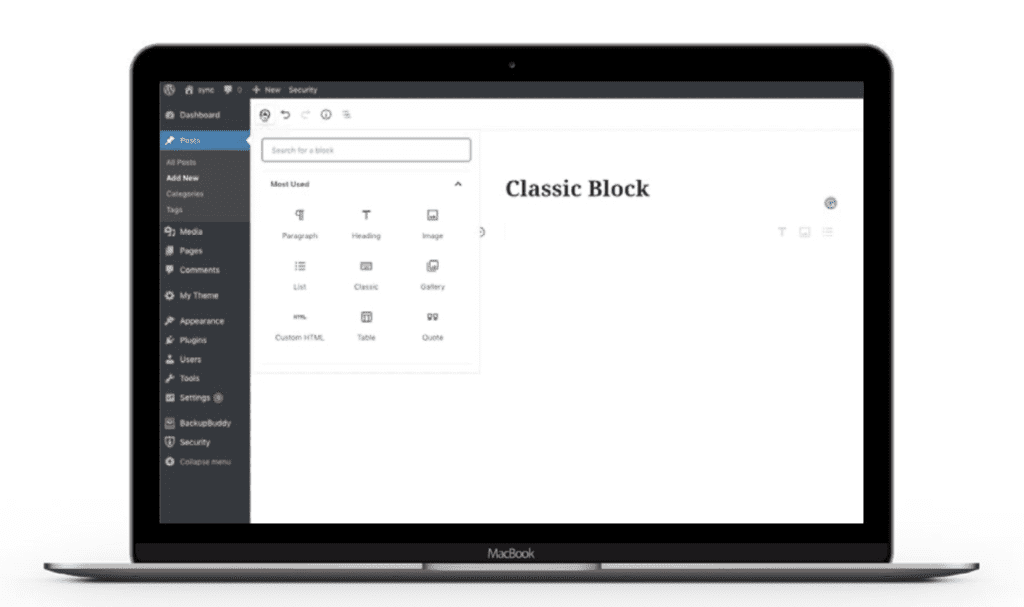WordPress vs Sitecore – which CMS is right for you?
Download this guide
WordPress vs Sitecore is an interesting debate, as two of the world’s titans of content management go head-to-head. If you’re in the middle of reviewing different content platforms then you’re likely considering one of these two really powerful platforms.
At Illustrate Digital, in collaboration with WP Engine, we have crafted this useful guide to help you compare the WordPress and Sitecore CMS systems. You need something that will best serve your organisation and make content management as flexible, easy and powerful as possible to align with your commercial goals. Pulling from the expertise of the in-house teams at both Illustrate Digital and WP Engine, we’ve created this guide to help tackle the most important aspects of your choice for a new content management system.
An Overview of WordPress vs Sitecore
WordPress is an entirely free and open source framework that now accounts for more than 40% of the top 1 million websites by traffic and still more than 35% of the top 10,000. Its widely-adopted framework provides a brilliant foundation upon which to build powerful websites that prioritise end-users and put an organisation’s success front and centre.

Sitecore operates under a commercial license with a hefty yearly fee and other additional support costs. It’s market share is low but it’s stacked with business intelligence functionality from day one that could prove useful.
Download the full guide to WordPress vs Sitecore at the top of this page.
This guide will explain why WordPress has grown in popularity across the world, as well as how it compares to Sitecore’s commercial model.
WordPress vs Sitecore User Experience and Ease of Use
At a macro-level, Sitecore is simply more complicated than WordPress, and configuring Sitecore can be an error-prone and frustrating process for even experienced developers.
WordPress, on the other hand, offers a far more straightforward user experience. To gain the full breadth of functionality that’s available with WordPress, it mainly requires staying up-to-date with the most recent version. If you’re using a recent version of WordPress, you’re likely benefiting from its most recent features and upgrades, and there are no restrictions as to how you can expand on its use.

Content creators, who oftentimes sit in the marketing department and who are not proficient in code or technical workflows will likely be unable to self-serve when it comes to many Sitecore functions, potentially adding extra burden to a company’s developer or engineering team.
While there’s more detail found in the guide on specific content and site creation functionality (content management tools, adaptability/versatility), the major difference to keep in mind is that Sitecore simply requires more technical knowledge than WordPress does, even for relatively minor tasks and updates.
Versatility and Adaptability of WordPress and Sitecore
The different use cases and wide applications of both WordPress and Sitecore provide some parity when it comes to versatility and the types of sites you can build with either CMS.
While Sitecore has traditionally been used for enterprise sites with high-traffic, or global/multi-lingual requirements, the maturity of WordPress as an enterprise solution has made it an attractive, high-ROI replacement for bulky, proprietary content management software adopted over the past decade or more.
Sitecore is indeed a flexible and highly extendable CMS, however, when it comes to being truly versatile for non- technical users, it is without a doubt overly complicated. Even software developers need (costly) training to get the most value out of Sitecore and business users do not find it intuitive to use.
While Sitecore provides templates and the re-use of archived content for a similar foundational approach when building a net-new asset, WordPress and the block editor have the clear upper hand here by providing a faster, more straightforward process for creating and updating powerful digital experiences.
Download the full report now to learn a breadth of information about WordPress and Sitecore.
Visit Illustrate Digital to find out more about the services and support a specialist UX and WordPress agency can add to the value of your business. And visit WP Engine to learn about industry-leading managed WordPress hosting relied upon by more than 150K global websites.

